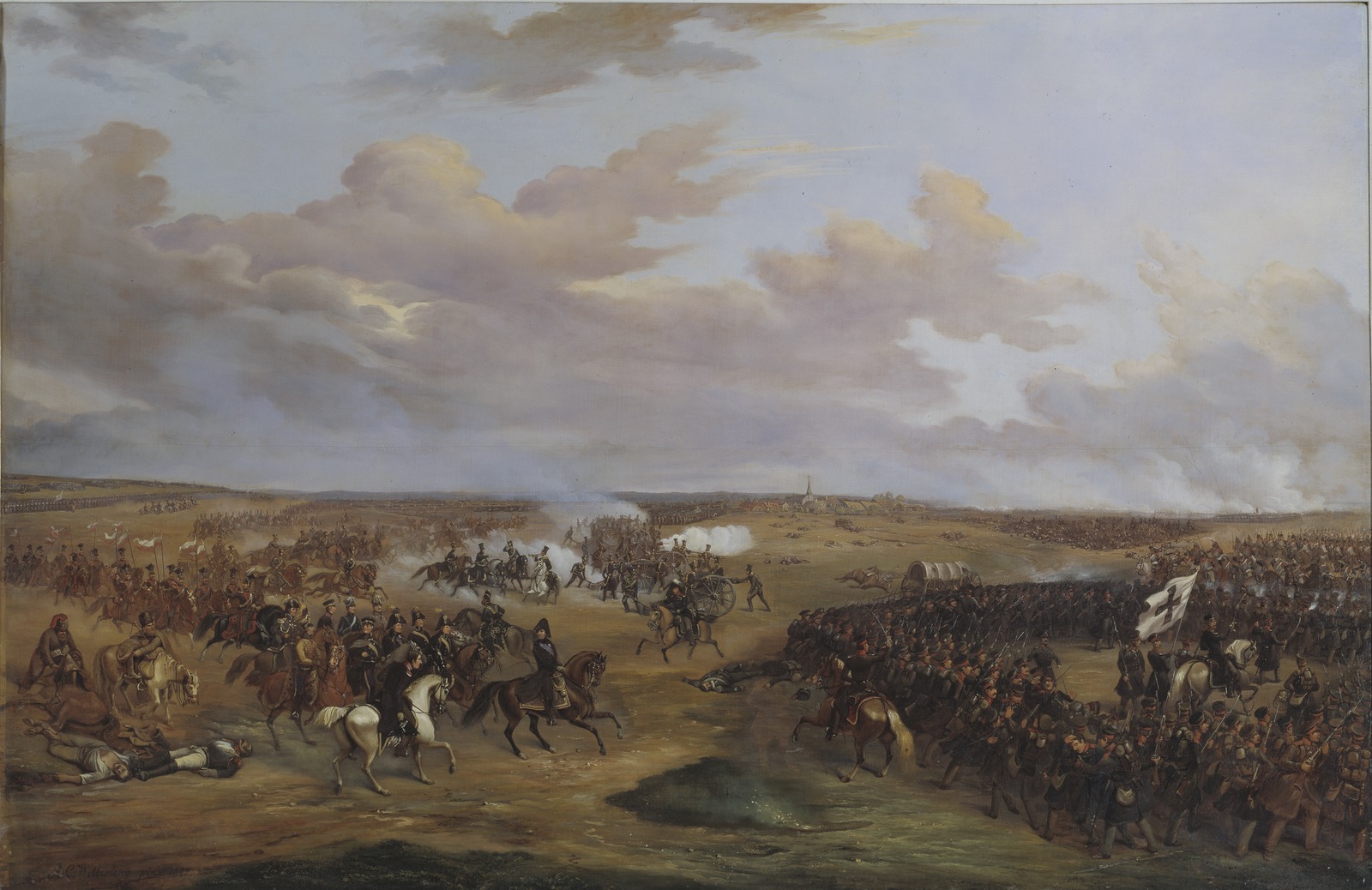
Battle of Dennewitz
Berlin, GermanyThe French then suffered another grievous loss at the hands of Bernadotte's army on 6 September at Dennewitz where Ney was now in command, with Oudinot now as his deputy. The French were once again attempting to capture Berlin, the loss of which Napoleon believed would knock Prussia out of the War. However, Ney blundered into a trap set by Bernadotte and was stopped cold by the Prussians, and then routed when the Crown Prince arrived with his Swedes and a Russian corps on their open flank. This second defeat at the hands of Napoleon's ex-Marshal was catastrophic for the French, with them losing 50 cannon, four Eagles and 10,000 men on the field. Further losses occurred during the pursuit that evening, and into the following day, as the Swedish and Prussian cavalry took a further 13,000–14,000 French prisoners. Ney retreated to Wittenberg with the remains of his command and made no further attempt at capturing Berlin. Napoleon's bid to knock Prussia out of the War had failed; as had his operational plan to fight the battle of the central position. Having lost the initiative, he was now forced to concentrate his army and seek a decisive battle at Leipzig.
Compounding the heavy military losses suffered at Dennewitz, the French were now losing the support of their German vassal states as well. News of Bernadotte's victory at Dennewitz sent shock waves across Germany, where French rule had become unpopular, inducing Tyrol to rise in rebellion and was the signal for the King of Bavaria to proclaim neutrality and begin negotiations with the Austrians (on the basis of territorial guarantees and Maximillian's retention of his crown) in preparation of joining the Allied cause. A body of Saxon troops had defected to Bernadotte's Army during the battle and Westphalian troops were now deserting King Jerome's army in large numbers. Following a proclamation by the Swedish Crown Prince urging the Saxon Army (Bernadotte had commanded the Saxon Army at the Battle of Wagram and was well liked by them) to come over to the Allied cause, Saxon generals could no longer answer for the fidelity of their troops and the French now considered their remaining German allies unreliable. Later, on 8 October 1813, Bavaria officially ranged itself against Napoleon as a member of the Coalition.
Ask Herodotus
HistoryMaps Shop

Heroes of the American Revolution Painting
Explore the rich history of the American Revolution through this captivating painting of the Continental Army. Perfect for history enthusiasts and art collectors, this piece brings to life the bravery and struggles of early American soldiers.








